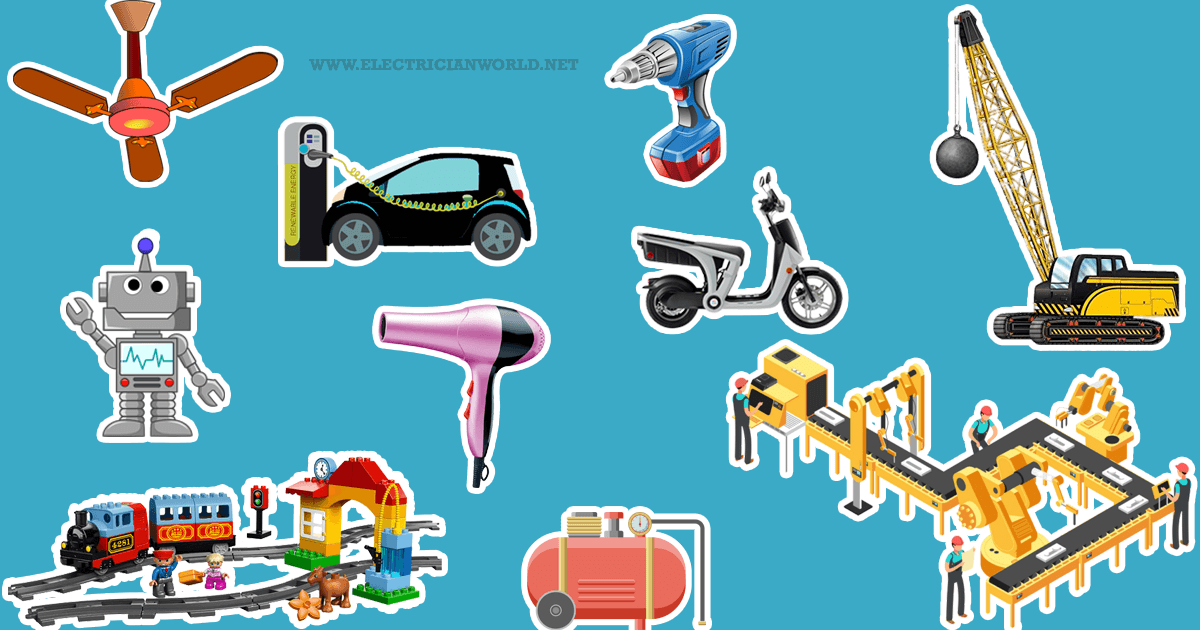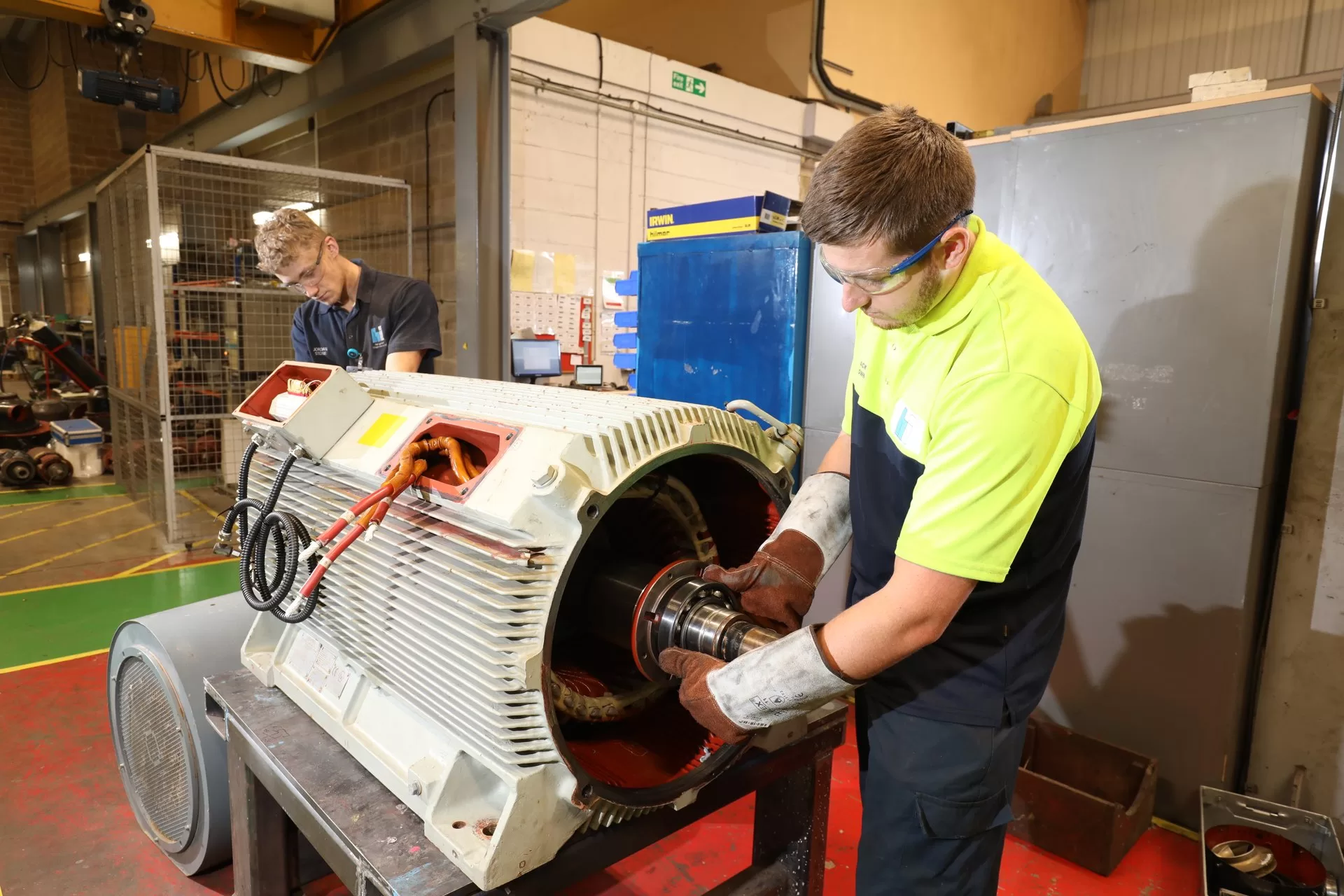Understanding the Importance of Efficient Motor Systems
In the industrial sector, efficient motor systems play a vital role in ensuring smooth operations, reducing downtime, and increasing productivity. Industrial motor solutions are the backbone of various industries, including manufacturing, oil and gas, and food processing, among others. The significance of these solutions lies in their ability to minimize energy consumption, reduce maintenance costs, and enhance overall operational efficiency. By implementing efficient industrial motor solutions, businesses can streamline their processes, improve product quality, and gain a competitive edge in their respective markets. In essence, the importance of industrial motor solutions cannot be overstated, as they have a direct impact on a company’s bottom line and overall success.
How to Select the Right Motor for Your Industrial Application
Selecting the optimal motor for a specific industrial application is crucial to ensure efficient and reliable operation. A mismatch between the motor and application can lead to reduced productivity, increased energy consumption, and even premature motor failure. When choosing an industrial motor, consider the following key factors:
Power requirements: Determine the horsepower or wattage needed to power your equipment or machinery. Over- or under-sizing the motor can result in inefficient operation and decreased performance.
Voltage and frequency: Ensure the motor is compatible with the available voltage and frequency in your industrial setting. This is critical to avoid motor damage and ensure safe operation.
Environmental conditions: Consider the operating environment, including temperature, humidity, and exposure to hazardous substances. This will help you select a motor designed to withstand the specific conditions of your industrial application.
Load characteristics: Understand the load requirements, including the type of load (e.g., constant, variable, or intermittent), torque requirements, and duty cycle. This information will help you choose a motor that can efficiently handle the load demands.
Industrial motor solutions providers often offer customized motor designs to cater to specific application needs. By considering these factors and potentially working with a trusted provider, you can ensure that your industrial motor is optimized for performance, efficiency, and reliability. By doing so, you can minimize downtime, reduce energy consumption, and improve overall productivity – ultimately, leading to increased profitability and competitiveness in your industry.
In industrial settings, the importance of selecting the right motor cannot be overstated. A well-matched motor can significantly impact the overall efficiency and effectiveness of your operations. By carefully evaluating your application requirements and working with a reputable industrial motor solutions provider, you can unlock the full potential of your industrial motor and reap the benefits of enhanced productivity, reduced maintenance, and energy savings.
Motor Efficiency and Energy Savings: What You Need to Know
Motor efficiency is a critical aspect of industrial motor solutions, as it has a direct impact on energy consumption and operating costs. Efficiency refers to the ratio of the motor’s output power to its input power, with higher efficiency ratings indicating less energy waste and reduced heat generation. According to the US Department of Energy, industrial motors account for approximately 70% of the energy consumed in manufacturing facilities. By optimizing motor performance, industrial facilities can significantly minimize energy consumption and reduce their environmental footprint.
When evaluating industrial motor solutions, consider the Total Cost of Ownership (TCO) approach, which encompasses not only the initial purchase price but also ongoing energy costs, maintenance expenses, and projected lifespan. High-efficiency motors may have a higher upfront cost, but they often offer substantial long-term savings through reduced energy consumption. The US Environmental Protection Agency (EPA) has established the ENERGY STAR program to promote energy-efficient motor solutions, with certified products meeting strict guidelines for efficiency and performance.
Various strategies can be employed to optimize industrial motor efficiency, including proper motor sizing, regular maintenance, and smart sensor technologies. Proper motor sizing involves selecting a motor that meets the specific requirements of the application, avoiding oversized or undersized motors that can lead to energy waste. Regular maintenance, such as lubrication, alignment, and balancing, can also help to maintain motor efficiency and extend its lifespan. Smart sensor technologies can be integrated into industrial motor solutions to monitor performance in real-time, detecting potential issues before they become major problems.
In addition to these strategies, industrial motor solutions can take advantage of advanced materials and technologies to further enhance efficiency. For instance, high-temperature superconductors can minimize energy losses in motor windings, while advanced bearing designs can reduce friction and heat generation. Ultimately, a well-designed and well-maintained industrial motor solution can have a significant impact on a facility’s energy efficiency and overall cost-effectiveness.
By leveraging the expertise of a reliable industrial motor solutions provider, industrial facilities can capitalize on the latest innovations in motor efficiency and energy savings. These partners can offer customized solutions tailored to specific applications, ensuring that the optimal motor is selected and installed to meet the facility’s unique needs. By doing so, industrial facilities can reap the benefits of reduced energy consumption, lower operating costs, and improved environmental sustainability.
Motor Maintenance and Repair: Best Practices for Industrial Motors
Maintenance is crucial to extending the lifespan of industrial motors and ensuring optimal performance in industrial motor solutions. Regular maintenance schedules and thorough inspections can help identify potential issues before they escalate into major problems, reducing downtime and associated costs. The following best practices for motor maintenance and repair can help industrial operations run smoothly and efficiently.
One of the primary aspects of motor maintenance is lubrication. Proper lubrication is essential for motor bearings, as it reduces friction and helps prevent overheating. Industrial motor solutions should include a lubrication schedule, detailing the type and amount of lubricant required, as well as the frequency of application. It is also vital to ensure the motor is clean and free of debris before applying lubricant to avoid contamination.
Regular inspection is another critical component of motor maintenance. Industrial motor solutions should include a thorough inspection of the motor’s electrical connections, checking for signs of wear, corrosion, or damage. This includes examining the condition of insulation, looking for cracks or breaks in the insulation, and verifying that electrical connections are secure and not loose.
In addition to regular inspections and lubrication, industrial motor solutions should include a troubleshooting plan to quickly identify and address motor issues. This plan should outline common problems, such as overloads, imbalances, or misalignment, and provide steps to resolve these issues. This proactive approach enables industrial operations to respond rapidly to motor issues, minimizing downtime and associated costs.
When it comes to repairing industrial motors, it is essential to work with a qualified and experienced technician. This technician should have a thorough understanding of industrial motor solutions and be able to diagnose and repair issues quickly and efficiently. A well-planned repair strategy should also include a contingency plan for critical motor failures, ensuring minimal disruption to industrial operations.
By incorporating these motor maintenance and repair best practices into industrial motor solutions, operations can ensure optimal motor performance, reduce downtime, and minimize energy consumption. Additionally, leveraging the expertise of a trusted industrial motor solutions provider can provide valuable guidance on motor maintenance and repair, helping industrial operations achieve their goals and stay competitive in today’s market.
The Role of Automation in Industrial Motor Solutions
Automation plays a vital role in modern industrial motor solutions, enabling industries to optimize efficiency, reduce downtime, and enhance overall performance. One of the key components of automation in industrial motor solutions is the integration of smart sensors, which provide real-time data on motor performance, temperature, and vibration. This data is crucial in predictive maintenance, allowing industries to identify potential issues before they occur, thus reducing the risk of unplanned downtime and increasing overall productivity. The use of IoT connectivity further enhances this capability, enabling industries to remotely monitor and control their industrial motor solutions, making it easier to respond to issues and make data-driven decisions. Industrial motor solutions with automation capabilities can also be integrated with other systems, such as SCADA and ERP systems, to provide a comprehensive view of operations and optimize energy consumption. Furthermore, the application of artificial intelligence and machine learning algorithms can help analyze data from industrial motor solutions, identifying trends and patterns that can inform maintenance and optimization decisions. By embracing automation in industrial motor solutions, industries can achieve higher levels of efficiency, reliability, and cost-effectiveness, ultimately improving their competitiveness in the market. By partnering with a reliable industrial motor solutions provider, industries can gain access to the latest automation technologies and expertise, ensuring a smooth and effective integration of these solutions. Overall, the incorporation of automation in industrial motor solutions is a crucial step towards optimizing industrial operations and achieving long-term success.
Case Studies: Successful Industrial Motor Solutions in Various Industries
Industrial motor solutions have been successfully implemented in various industries, resulting in significant improvements in efficiency, productivity, and cost savings. For instance, in the manufacturing sector, a leading automotive parts supplier integrated a customized industrial motor solution that resulted in a 25% reduction in energy consumption and a 30% increase in production output. The solution involved the installation of high-efficiency motors and the implementation of a predictive maintenance program that enabled early detection of potential issues and reduced downtime.
In the oil and gas industry, a major drilling company upgraded its pump systems with industrial motor solutions that are designed to withstand the harsh environments encountered in drilling operations. The new motors featured advanced corrosion-resistant materials and improved cooling systems, resulting in a significant reduction in motor failures and associated downtime. Additionally, the motors’ improved efficiency led to cost savings of over $1 million per year.
In the food processing industry, a large dairy processing plant implemented an industrial motor solution that focused on improving the efficiency of its refrigeration systems. The solution involved the installation of high-efficiency motors and the implementation of a variable frequency drive (VFD) system that enabled the motors to operate at optimal speeds. The result was a 20% reduction in energy consumption and a 15% increase in production capacity.
Another notable example is a water treatment plant that implemented an industrial motor solution to improve the efficiency of its pumping systems. The solution involved the installation of submersible motors that are designed to operate in harsh environments and feature advanced corrosion-resistant materials. The new motors resulted in a 25% reduction in energy consumption and a significant reduction in maintenance costs.
These case studies demonstrate the effectiveness of industrial motor solutions in various industries and highlight the importance of selecting the right motor for specific applications. By understanding the unique requirements of each industry and application, industrial motor solutions can be customized to meet specific needs, resulting in improved efficiency, productivity, and cost savings.
Future-Proofing Your Industrial Operations: Emerging Trends in Motor Solutions
The industrial landscape is constantly evolving, and industrial motor solutions must adapt to keep pace. Recent years have seen significant advancements in motor technology, enabling more efficient, reliable, and connected systems. Emerging trends in industrial motor solutions are transforming the way businesses operate, and it’s essential to stay informed about these innovations to remain competitive. One key trend is the development of advanced materials, such as high-temperature superconductors and nanomaterials, which can enhance motor efficiency, reduce energy consumption, and increase power density. Another significant trend is the integration of wireless communication technologies, including Bluetooth, Wi-Fi, and 5G, into industrial motor solutions, enabling real-time monitoring, remote control, and predictive maintenance. Additionally, the increasing adoption of artificial intelligence (AI) and machine learning (ML) algorithms in industrial motor solutions is optimizing performance, detecting anomalies, and improving overall system reliability.
The incorporation of IoT sensors and data analytics in industrial motor solutions is providing valuable insights into motor performance, enabling condition-based maintenance, and reducing downtime. Moreover, the development of more sustainable and energy-efficient industrial motor solutions is becoming increasingly important, as companies focus on reducing their environmental impact. Some industrial motor solutions providers are now offering energy-efficient solutions that meet or exceed the latest international standards, such as the International Electrotechnical Commission’s (IEC) IE2, IE3, and IE4 efficiency classes. By staying up-to-date with these emerging trends in industrial motor solutions, businesses can future-proof their operations, improve efficiency, reduce costs, and maintain a competitive edge in their respective markets. By adopting the latest innovations in industrial motor solutions, manufacturers can ensure their operations are optimized for maximum performance, efficiency, and sustainability, ultimately contributing to their long-term success.
Partnering with a Reliable Industrial Motor Solutions Provider
Industrial motor solutions providers play a critical role in helping organizations achieve optimal performance, reduce costs, and ensure compliance with regulatory requirements. A reliable partner can help assess plant performance, identify inefficiencies, and implement customized solutions that drive business objectives. When selecting a partner, consider their experience in delivering industrial motor solutions across various industries and their knowledge of the latest technologies and trends. A qualified provider can help optimize motor functionality, retrofit existing motor systems, and integrate automation technologies, ensuring that industrial operations run smoothly and efficiently.
A trusted industrial motor solutions provider will work closely with clients to understand their specific needs and goals, providing tailored solutions that cater to their unique requirements. They should possess a deep understanding of the production process, from motor selection to final installation and commissioning. This collaboration enables the client to leverage the provider’s expertise, ensuring that industrial motor solutions are implemented effectively and efficiently. By partnering with a reputable provider, organizations can benefit from expert technical support, reduced lead times, and access to cutting-edge products and services.
The partnership should be built on open communication, trust, and a commitment to delivering high-quality industrial motor solutions. The provider should be willing to share knowledge, best practices, and insights to help clients make informed decisions about their industrial operations. This collaborative approach enables clients to stay ahead of the competition, capitalize on market opportunities, and drive long-term growth and profitability. By forming a strong partnership with a reliable industrial motor solutions provider, organizations can ensure that their industrial operations are always running at peak performance.
Industrial motor solutions providers are essential in helping companies adapt to the evolving landscape of industrial operations. As industries continue to digitize, automation technologies play an increasingly vital role in enabling data-driven decision-making, predictive maintenance, and optimized production processes. A knowledgeable provider can help organizations harness the power of these technologies, leveraging advanced tools and platforms to streamline industrial operations and enhance competitiveness. By partnering with a trusted provider, organizations can tap into the latest innovations and best practices in industrial motor solutions, ensuring that they remain at the forefront of their respective industries.



